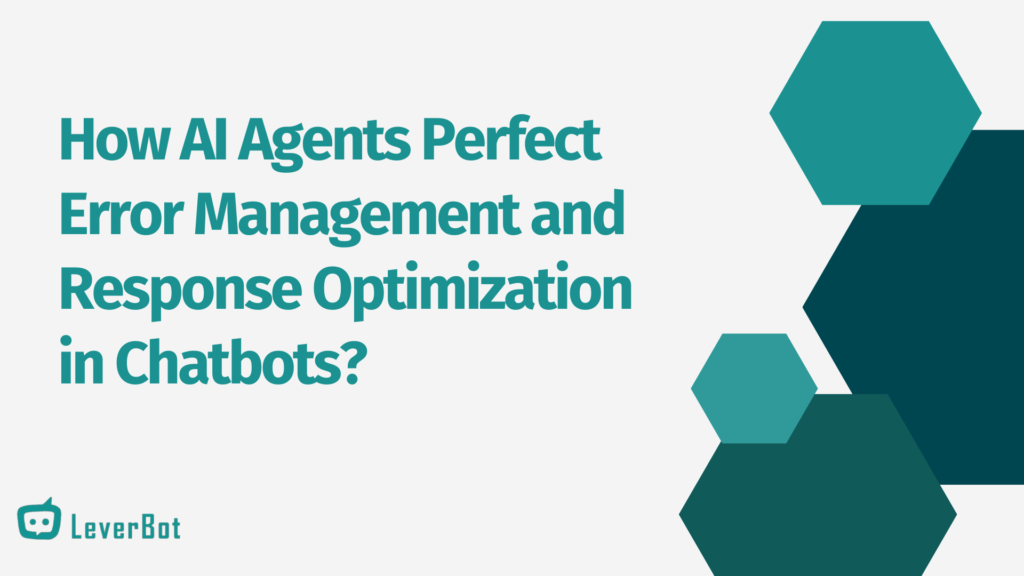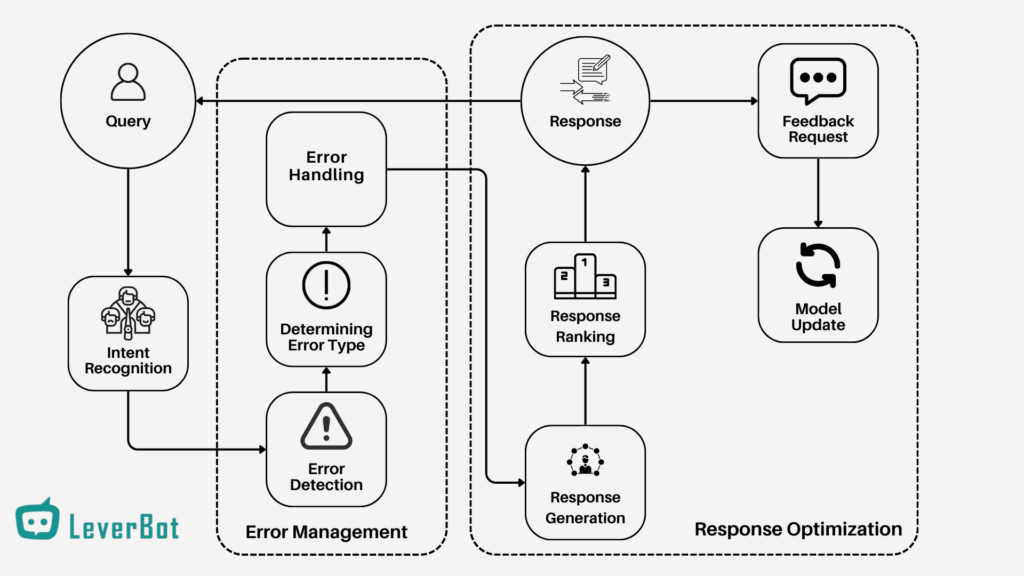
Chatbots have become indispensable tools for modern businesses, enabling users to access information quickly and efficiently. However, a chatbot’s inability to interpret user queries accurately or respond to user errors appropriately can significantly impact the user experience. For example, Gartner reports that 41% of users reduce their loyalty to a brand after a poor chatbot interaction. To address such issues and improve chatbot accuracy, AI agents are employed. Technologies such as semantic search, retrieval-based systems, and ranking algorithms enable chatbots to deliver more meaningful and accurate responses, ensuring effective error management and response optimization. This blog explores these concepts in detail.
Error Management
Error management ensures that chatbots can handle misunderstandings or incomplete responses effectively. AI agents analyze user interactions to detect and correct errors.
Solutions for Misunderstandings
Intent Recognition
- AI agents aim to identify the intent behind user queries. For example, questions like “I want to know my shipment status” and “Where is my order?” point to the same goal. Natural Language Understanding (NLU) models help in correctly identifying user intent.
- According to a study by OpenAI, intent recognition algorithms can improve chatbot accuracy by 25%.
Correcting Errors
- AI agents detect and correct typos or improper phrasing. For instance, a query like “Trak my ordr” can be corrected to “Track my order.” Google’s NLP models achieve a 93% accuracy rate in spelling correction.
Managing User Errors
- AI agents provide interactive feedback mechanisms to clarify ambiguous user inputs. For example, a chatbot might ask, “Are you trying to track your order?” to confirm the user’s intent.
Response Optimization: Ranking Algorithms
A key approach to ensuring accurate responses is the use of ranking algorithms. These algorithms help AI agents select the most appropriate response from a set of possible answers.
Applications of Ranking Algorithms
Response Prioritization
- Potential responses are ranked based on relevancy scores. Algorithms like BM25 or T5 are effective in achieving high accuracy in response ranking.
- For example, when a user asks, “How does the return process work?” AI agents rank possible responses and select the one with the highest relevancy score.
Training Processes
- Ranking algorithms are trained with historical user data to improve accuracy over time. BERT-based models, for instance, enhance context understanding by 40%.
Semantic Search and Retrieval-Based Systems
Semantic search analyzes the deeper meaning of user queries to deliver the most relevant answers. Unlike traditional keyword-matching methods, semantic search considers context and intent, offering significantly more accurate results. When combined with retrieval-based systems, AI agents achieve superior performance.
Delivering Accurate Answers with Semantic Search
Semantic search retrieves meaningful results from a knowledge base by deeply analyzing user queries. For instance, when a customer asks, “My delivery is delayed, what can I do?” the chatbot interprets the context rather than focusing only on the keyword “delay,” providing a suitable solution.
Retrieval-Based Systems
Retrieval-based chatbots operate on predefined response sets. When combined with semantic search, these systems become more flexible and accurate. IBM Watson, for example, improved response accuracy by 30% by integrating retrieval-based systems with semantic search techniques.

Conclusion
AI agents play a vital role in managing chatbot errors and optimizing responses. The integration of semantic search, retrieval-based systems, and ranking algorithms ensures that chatbots provide more meaningful and accurate responses. These advancements enhance user experience and operational efficiency, maximizing the effectiveness of AI agents. As these technologies continue to evolve, they will further solidify the importance of chatbots in our daily interactions.
As Leverbot, we developed our product using these technologies. Use Leverbot now and start using these latest technologies!


